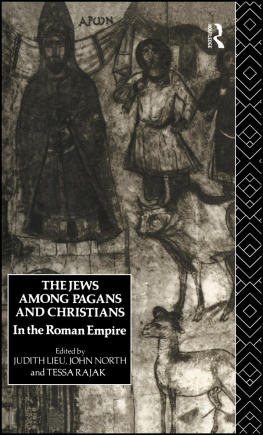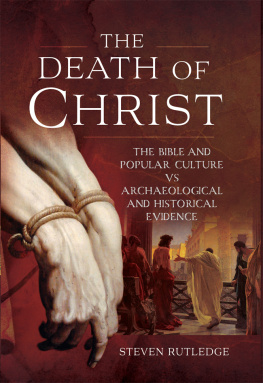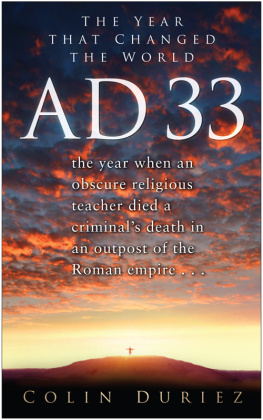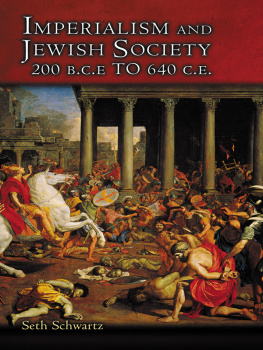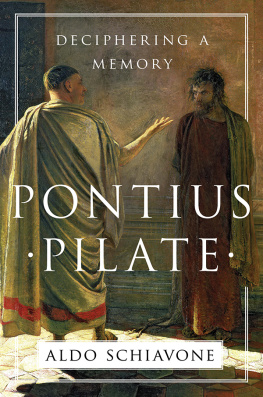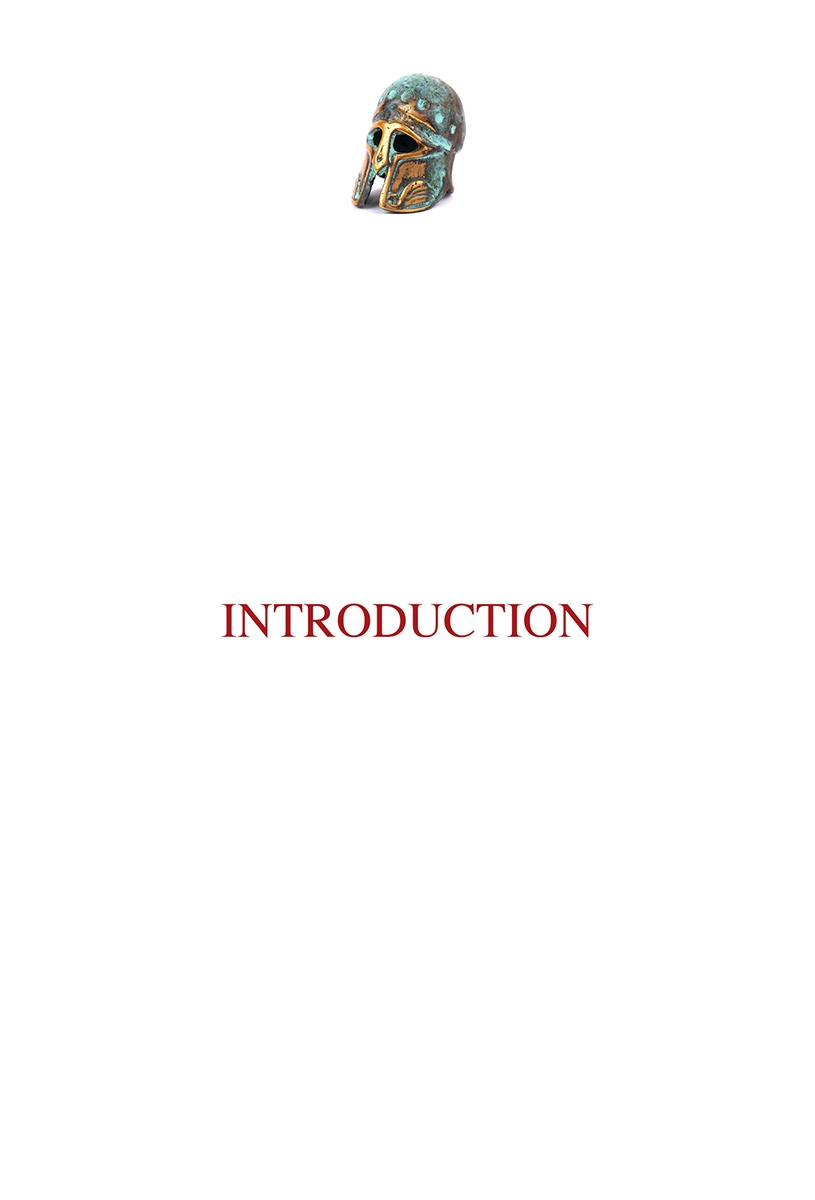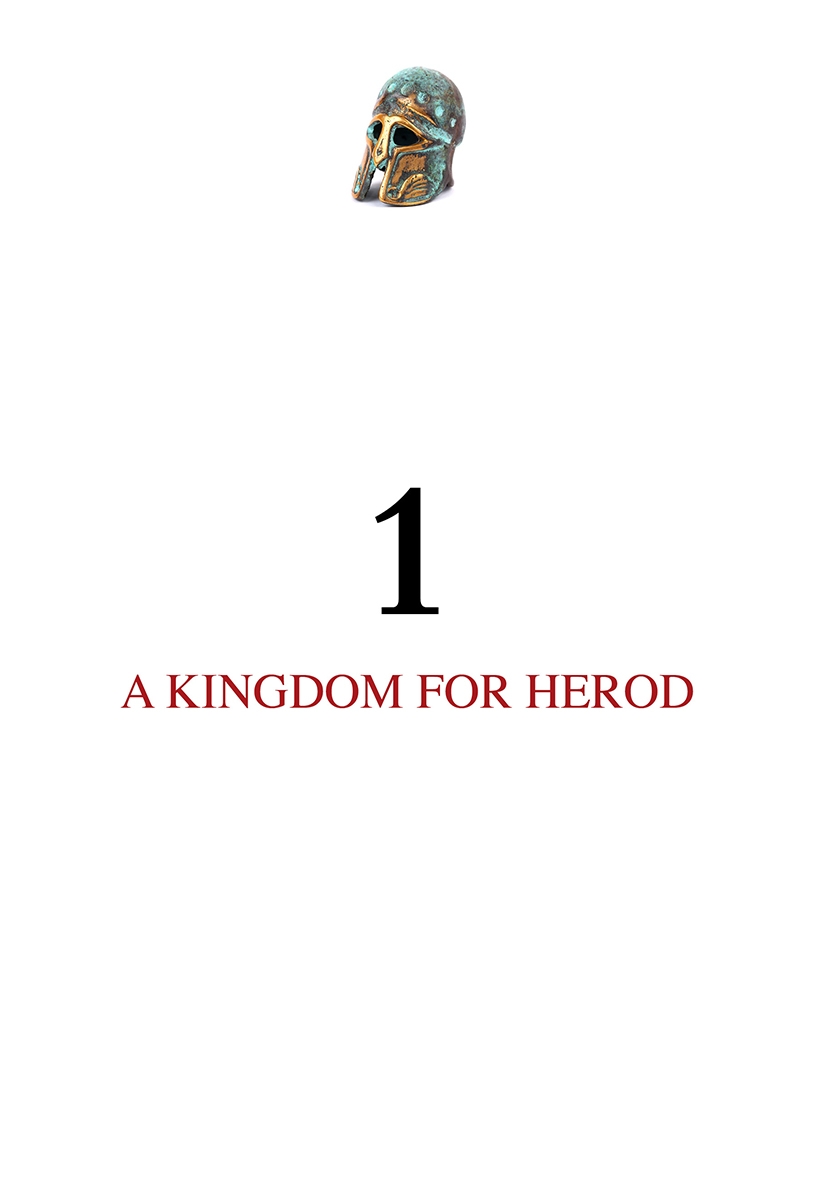In the twelfth year of Emperor Tiberiuss reign, a new Roman procurator was sent to the eastern Mediterranean to govern the subject land of Judaea. Some ten years later, he was removed from office for a misdeed and exiled to Gaul, where he may have committed suicide. The man, Pontius Pilate, could never have imagined that his name would be forever fixed in history through a minor event of those years in Judaea - his sentencing to death of an accused rebel, a Jew named Jesus.
The Holy Land, as Judaea, or Palestine, came to be known, was the scene of great political, social, and religious upheaval in the two centuries surrounding the life of Jesus. The Romans under Pompey arrived as conquerors in 63 BCE. Not until CE 135, two centuries later, was Roman mastery of the troublesome Jewish homeland made complete. The Jews, inheritors and guardians of an ancient belief in a single, all-powerful God, were dispersed to many lands. But from this trial - and from the cruel persecutions of subsequent generations - emerged a stronger Jewish faith.
The followers of Jesus, originally a minor sect within Judaism, eventually forged a powerful religion out of the belief that he was the Christ, or Messiah. As different as they remain, Judaism and Christianity share a common reverence for the Old Testament and for the Holy Land, where Jesus once walked, and where, since 1948, the Jewish state of Israel has flourished.
The story of a land in ferment and of the growth of these two faiths forms an absorbing and important historical chronicle.
In the first century BCE, Rome gained control of the Mediterranean world. Its invincible legions had marched across parts of three continents, conquering kingdom after kingdom and plundering venerable cities that had been rich and powerful when Rome was still a cluster of hill settlements. Romes enemy Carthage, the proud maritime city on the North African coast, had been leveled to the ground and salt strewn over its soil so that nothing would ever grow again. Athens, in Greece, and the great Egyptian temple-cities beside the Nile had seen the Roman troops parade by, their javelins and eagle standards held high and the feathers on their crested helmets waving in the wind. Roman legionaries had traveled as far as Britain to the north, and to the east as far as the edge of the great desert that separates the lands bordering the Mediterranean Sea from the rest of Asia.
The armies of Rome subjugated farmers and city dwellers and wandering tribesmen; they gathered beautiful works of art from Greek cities and shipped them home to adorn the luxurious villas of Roman aristocrats; and everywhere they went, they requisitioned gold and stripped the temples of treasures.
But they also established order and the rule of Roman law. Where before there had been squabbling city-states, constantly at war with one another, princes murdering their brothers to gain thrones, petty monarchs vying for a few square miles of land, pirates terrorizing the sea lanes, and highwaymen robbing travelers, there was now peace and safety.
Most of the conquered nations accepted Roman rule. The conquerors taxed their subjects heavily, but once tax money was collected, they usually respected local customs and local traditions. Roman generals even offered sacrifices to honor the local gods and entertained the population with gladiatorial games and circuses. Roman governors erected aqueducts to bring water to the cities and built highways to foster travel and trade. Under Roman protection, the Mediterranean world grew prosperous.
In at least one part of their empire, however, the Romans found themselves hated. That was in the land that came to be known as Palestine, at the eastern end of the Mediterranean Sea. Its four regions, Idumaea, Judaea, Samaria, Galilee - stacked from south to north like boxes one on top of another - were conquered in 63 BCE by the Roman general Pompey. The conquerors allowed Palestines rulers to exercise limited power as long as they promised to enforce peace and remain loyal to Rome. It was not easy to maintain peace and loyalty, however, for the population of Palestine was divided. In Judaea and Galilee, the people were mostly Jews, who fiercely upheld their ancient religion and refused to mingle with other men, men who worshiped idols instead of a single, invisible God. They found it intolerable that Roman law should take precedence over the laws of the Torah - the first five books of the Bible - which they believed had been given to them by God Himself.
In Idumaea and Samaria, however, the population welcomed the Romans. The Idumaeans were forced converts to Judaism, and the Samaritans were a racially mixed people who observed part of the Jewish religion. The two peoples saw no reason to hold themselves apart from the rest of the world. They believed that the unification of the shores of the Mediterranean under Roman rule brought prosperity, and they were anxious to share in it.
But most of the Jews refused to cooperate with the Romans. They were determined to maintain their own identity and not be swallowed up in the vast and expanding imperial power of Rome. They knew they could do this only by remaining apart and by following their own traditions. For two centuries (63 BCE to CE 135) conflict raged between the Romans and the Jews, sometimes breaking into open warfare but more often seething under the surface. Whenever war broke out, the Jews eventually lost, but they were never really defeated. Indeed, the great conflict that the Romans thought they won had unexpected consequences. It made the Jewish religion over into a newly strengthened faith capable of surviving for centuries in the future, wherever the Jews might wander in a hostile world. It also fostered the birth of another religion - Christianity - which began as a tiny sect within Judaism but was eventually adopted by the entire Roman Empire and spread to the ends of the earth.
The Romans of the time could not foresee these developments, of course. All they knew was that the Jews stubbornly insisted on holding to their own ways. And so, in order to encourage integration of the Jews into the empire, rulers Marc Antony and Octavian, some twenty years after Pompeys conquest, decided to place a puppet king on the throne of Judaea - a ruler who would support the interests of Rome and firmly suppress any attempts by the Jews to assert their independence.
Romes candidate for the throne was a young man named Herod. He was a tall, handsome Idumaean prince just under thirty years of age, an athlete, a hunter, and an accomplished military leader whose talents might be put to use to protect the eastern borders of the empire. Herod had many other qualifications to recommend him to Rome. Since his family had been converted to Judaism, the Jews presumably would not object to him on religious grounds. Skillful in handling men, ruthless when necessary, and kind when kindness seemed to be the most practical course to follow, Herod had the potential to be a strong ruler. He could be charming and shrewd, for he was well educated and had learned the polished Greek manners that were required for leadership in the ancient world. Herod had made himself a close friend of some of the most powerful men in Rome; in addition, he had valuable connections in the Arab lands that bordered Palestine. Rome needed friends there in order to maintain trade, and Herod could be useful. He had grown up in Petra, the wealthy desert capital that controlled the caravan route that reached from Arabia to the Mediterranean shores, and he was related through his mother to its most important and richest citizens. Herods father, Antipater, had also found favor with the Romans. He had served as governor of Idumaea, winning for his sons Herod and Phasael the governorships of Galilee and Judaea. To Antony and Octavian, all this seemed to provide Herod with a powerful claim to the royal palace that loomed high above Jerusalem, the capital and holy city of the Jews.



